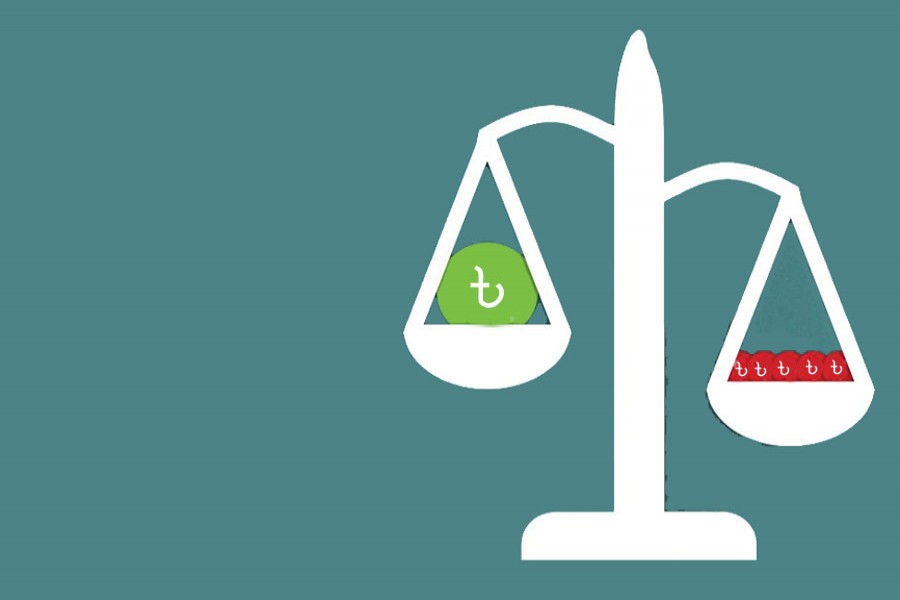Share of income has concentrated and centralised among the richest groups and the distribution of income is becoming progressively unequal in the country, according to a study.
The study, conducted recently by Oxfam in collaboration with ‘Unnayan Onneshan’, shows that the ratio of concentration of income grew from 1.73 in 1985-86 to 2.93 in 2016 and the ratio was 2.23 in 1995-96 and 2.62 in 2005, which means the concentration of income has increased by 69.36 per cent in last three decades in the country.
Besides, another aspect of inequality in financial access is the excessive concentration of loans in certain geographic locations, the research titled ‘Whither Inequality in Bangladesh’ has found.
This illustrates a heavy concentration of loans in major cities compared to negligible amount of loans disbursed in other regions, it disclosed.
The study was released at a national dialogue on ‘Whither Inequality in Bangladesh’ on Thursday at CIRDAP auditorium in the city, organised by Oxfam.
MA Mannan, Minister of Ministry of Planning, was present at the dialogue as the chief guest with Dr. Dipankar Datta, Country Director, Oxfam, in the chair.
Dr A.B. Mirza Azizul Islam, former advisor to the Caretaker Government of Bangladesh and professor of BRAC University Business School, Dr. Salehuddin Ahmed, economist and former governor of Bangladesh Bank and professor of BRAC University Business School, Rasheda K Chowdhury, former advisor to the Caretaker Government of Bangladesh and also executive director-Campaign for Popular Education (CAMPE), among others, also attended the function as the special guests.
Dr. Muhammad Abdul Mazid, former secretary and chairman, National Board of Revenue (NBR), and Professor M.M. Akash, Department of Economics of University of Dhaka, among others, spoke on the occasion as the experts.
The study also revealed that people at rural areas have been facing the tribulation of unemployment due to lack of alternative sector based employment opportunity, the study said.
Besides, inequality exists in accessing to justice where low-Income people carry higher financial burden to gain access to the injustice system in the country, according to the study.


